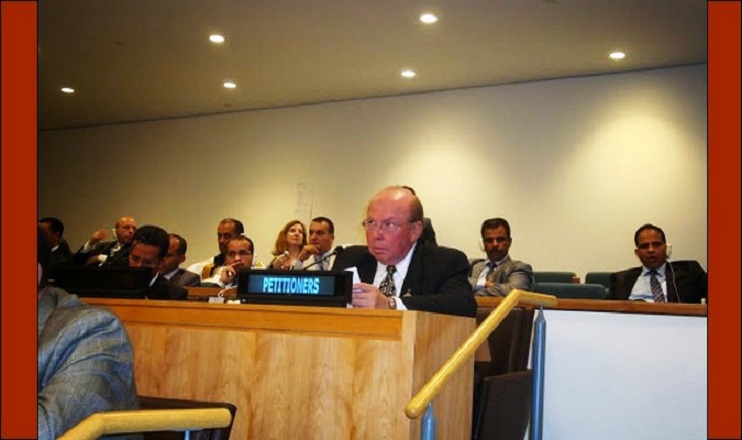The Birth MSP of , the Beginning of the End of Polisario front (Peruvian expert)
“The Movement of Sahrawis for Peace” (MSP), set up lately in Spain, has put an end to the myth of the Polisario as the sole representative of the Sahrawis”, sounding the “beginning of the end for the corrupt Front“, said Peruvian expert in international relation Ricardo Sanchez Serra.
“The Polisario’s future is uncertain and the rise of MSP will lead to its fall,” said Mr Sánchez in a story published by news website “Prensa21”.
The Polisario has never been recognized by the UN as liberation movement because the UN knows that it is not independent and that it survives only thanks to the Algerian government’s generous support, underlined the Peruvian expert.
The new MSP “is a genuine alternative to the corrupt front”, which can no longer claim the status of “the sole legitimate representative” of the Sahrawi populations, explained Mr. Sanchez, recalling the diplomatic setback suffered last year by the Polisario and its Algerian mentor, when the UN Special Committee (C-24) invited elected representatives from the Moroccan Sahara to participate in its meetings.
During four decades, the sequestered Sahrawi populations have been deprived from democracy and the freedom to elect their own representatives, added Mr. Sanchez, noting that the totalitarian and authoritarian Polisario runs the Tindouf camps through its armed “militias, which ban the Sahrawis from movement, assembly and voicing criticism”.
According to the Peruvian expert, “one of the most important aspects in understanding the “regional dispute” over the Moroccan Sahara, is “the issue of representation”.
The MSP sent lately a letter to the UN Chief Antonio Guterres, expressing its readiness to work for a “peaceful solution” to the Sahara conflict, recalled Mr. Sanchez.
He warned that the UN would “put an end to the negotiations as no dialogue can be engaged with the sequestered people or phantom entities”, affirming that “the Tindouf populations are not refugees” but “hostages of the Polisario”.

